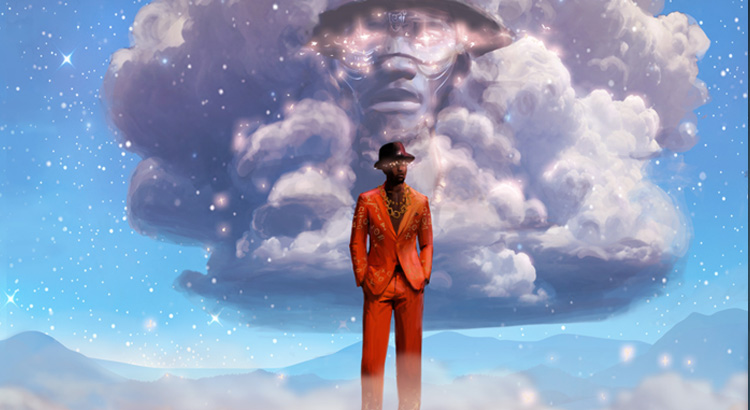The appeasement ceremony happens on a Wednesday morning. You don’t know that you’re lost. You will never know. Your Gogo and Mama stand under that baobab tree, the one where you had your first kiss stolen by a boy you will never remember, the one where you played nhodo with a friend who later tries to remind you of who you used to be, the one where you etched your name into after learning you were named after an ancient water spirit. A name you will never know was yours. Your mother’s heart almost bleeds when she sees your name, she hasn’t seen it since you were taken three years ago. It nearly brings her to tears, but she swallows her pain. She hasn’t cried for you. Not yet. She knows you will not return if she does. Her fingers caress your name, tracing each letter slowly, almost as if she were afraid to erase it. Your Gogo reminds your mother that you’re coming home soon. The njuzu finally accepted your mother’s request for appeasement. Everyone is excited for your return. They have been waiting. They don’t know you won’t return the same. They don’t know you won’t remember your name.
Your mother had a waterbirth. Perhaps that is why you were always been drawn to the water. She told you she thought a mermaid was swimming in her womb; you were always restless, always kicking her sides. Only swimmers kicked the way you did. And you loved to swim. You were always in the water, floating, paddling, kicking. The water was your second mother. You felt safe in her arms. So when she called, you answered. When you didn’t return from your evening swim, your mother knew the water had taken you. You were now with your second mother. An emptiness appeared in your mother’s stomach when you didn’t come up for air. She wanted to cry, she wanted to run to the water and take you back, but she knew what happened when mothers tried to steal from Water. She knew the njuzu would only return your corpse. So, your mother did not cry. She swallowed her tears and continued with her evening routine.
It had been a long time since the njuzu had taken someone from your village. Mothers knew the rules. Whenever the njuzu took someone, they could not cry; otherwise, their child would turn up dead by the shore. It angered the njuzu when the mothers cried; it made them feel incapable.
“It is an honour to be welcomed by the water spirits,” I told your mother a year after you were taken. It was your birthday, and your mother had a dream about you. In her dream, you were back home, smiling like you never left, itching to go for a sunrise swim. This was the first birthday without you and your mother was losing hope; she didn’t think you would return home, so she came to me for guidance.
“Don’t fret, Ma. You’ll just upset them. You know they hate when mothers worry about nothing. They are mothers, too. She’s in good hands.”
“But she’s my child! Mine!” your mother screamed, her fist hitting the bonde with each word. “She came out of me!” Your mother has always been strong. She’s a stubborn one, that one. But that was the first time in all my years I watched her break apart. Out of all the mothers who have had their children taken, your mother took the longest to cry. But your birthday was the first time she felt your absence. They say an orphan eats her fill the day her mother dies, but what does the mother eat when her child is caught in between the land of the living and the water?
It took two years for the njuzu to accept your mother’s offering. The njuzu have never kept someone for this long. Most people lose hope, convinced you are gone forever, but your Gogo and Mama remained hopeful, they kept your memory alive. The baobab tree kept your name alive. You will walk past this baobab tree many times, and you will never know that this is where your name lies. That is the price we pay. When the njuzu take us, we don’t return the same. We learn the secrets of the world; we learn the secrets of our ancestors. We lose our memories; we lose ourselves. We learn to feel everything and nothing all at once. We become a pillar for the people. We become n’anga. We become traditional healers. You become me.
It is time I go meet your mother. We must pour the sorghum beer in libation. The njuzu hate waiting, and your mother has waited enough. She will be happy to see you but when she realises you do not remember her, you do not remember yourself, she will finally cry. You are home, but you are not.
Rutendo Chidzodzo
Rutendo Chidzodzo is a Zimbabwean Afrosurrealist writer with roots all over. She is the recipient of the 2020 Ladies’ Literary Club Award, the Paul Engle Memorial Prize for Creative Writing, Ocean Vuong’s Rose Fellowship, among other awards. She is a recent alum of Clarion West Workshop, Tin House Workshop, and UMass Amherst’s MFA in Fiction. Rutendo’s work has been nominated for the 2024 AKO Caine Prize, and won the 2023 Fiction Best of a Shallow Award. She is currently working on a fabulist short story collection that explores the lives of Zimbabwean immigrants across the diaspora.

